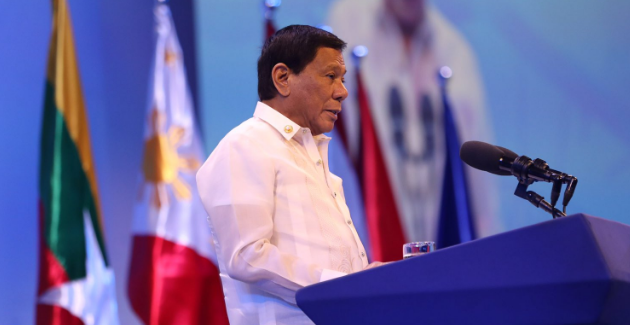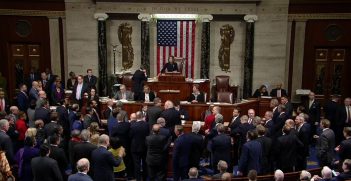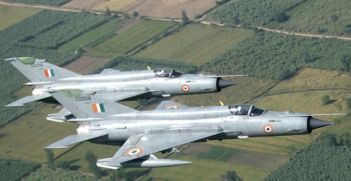We Need to Talk About The Philippines

Philippines President Rodrigo Duterte’s unusually abrasive style, extreme policies and international media visibility have become a source of tension in the relationship with Australia. While Duterte remains in power, Australia needs to develop strong track II diplomacy with the Philippines to improve mutual understanding.
Australia’s official diplomatic relations with the Philippines are constrained by a highly visible difference in core values at the highest level of leadership. Duterte’s violent drug war and bombastic, outlandish statements have attracted much interest from the Australian media and make it difficult for Australian diplomats to find common ground and work towards a mutually beneficial relationship with the Philippines. The Australian public knows little of the Philippines outside of the drug war and South China Sea (SCS) discourses. As Australia is a democracy, this constrains the manoeuvrability of Australian strategists and diplomats to engage productively with the Philippines. This is an intractable problem. Australia won’t change its core national values to better align with the Philippines’ president. Similarly, for fear of displeasing voters, the Australian government can’t make overly friendly diplomatic moves that might suggest they support his style of governance.
Public understanding and scholarly debate in Australia on the Philippines and the bilateral relationship, meanwhile, are generally shallow and lacking nuance. The Australian community of scholars and commentators collectively demonstrates limited engagement with the Philippines. Blog and journal articles on the Philippines’ role in the SCS dispute are common. However, only a handful of scholars and commentators in Australia are currently producing work that genuinely engages with the Philippines on its own terms (as a rare counterexample, see the outstanding work of Dr Imelda Deinla on pluralist justice, women and peacebuilding in Mindanao province). This means Australia lacks the kind of corporate knowledge that would help in peacebuilding and reaching mutually beneficial agreements if the Philippines-Australia relationship were to experience a crisis.
The Philippines may be host to geopolitical contestation in the near- and medium-future. The main driver of this shift appears to be a public and scholarly debate on the Philippines in the US that increasingly frames the Philippines as a strategic beachhead for the US pivot to Asia. Correctly or not, this is likely to be interpreted by many strategic thinkers as coded language for a strategy of proxy engagement designed to encircle and coerce China by projecting maritime and air power into the SCS and threatening China’s access to its maritime silk road. In the meantime, China’s One Belt One Road (OBOR) policy makes clear that the Chinese government feels threatened by its dependence on the SCS and maritime silk road as its main route for critical trade and energy flows. This is a dangerous combination of discourses, which have the potential to become self-fulfilling prophesies should they gain sufficient traction in US and Chinese strategic policy circles. This may increase the likelihood of a US-China proxy conflict in the Philippines. Even if not, it certainly means that the Philippines is likely to become the focus of greater strategic and diplomatic pressure from the US and China in coming years.
Meanwhile, Australia is caught in the middle between the US and China, and likely to be drawn into any struggles between the two that are staged in the Philippines. Australia is a major US ally, and strategic thinkers in Australia see the alliance and the US nuclear umbrella as strategic imperatives that cannot be replaced or departed from. Australia is also a major beneficiary of Chinese trade and, again, Australian policymakers and commentators see the continuation of that trade relationship as an economic and strategic imperative. This means that in the context of a US-China strategic or diplomatic (proxy) confrontation staged over the Philippines, Australia would almost certainly be involved in some way or another. In any case, the fact that these things are regarded as serious strategic considerations means that Australia’s strategic priorities will be increasingly oriented towards the Philippines for years to come.
Underlying all of this is the important and obvious fact that at this stage Australia doesn’t have enough hard or soft power to do anything to de-escalate US-China tensions over the Philippines and SCS. Nor can the Australian government hope to directly alter the way US and Chinese strategic policymakers perceive the Philippines. Our own diplomatic and strategic card set is limited by our relative insignificance. Australia must think of smarter, more indirect ways to improve our position vis-à-vis the Philippines and the US-China great power dynamic. As a nation, we should be looking for ways to engage better with the Philippines directly and to use that engagement as a basis to mediate effectively between the US and China on issues relating to the Philippines.
One clear avenue for investing our efforts is in awareness-raising and track II diplomacy—unofficial or informal contacts between private individuals from both countries. If there is a lack of diverse, nuanced Australian scholarship on the Philippines, then grant funding should be set aside to encourage more and better scholarship into this area. Similarly, if there is a lack of interest among policymakers, commentators and academics, Australia should draw on its robust civil society to run awareness-raising projects to enhance interest in and understanding of Philippine politics. If official diplomacy is stalling because of Duterte’s noise and penchant for controversy, then unofficial track II diplomacy should be used to build more abiding people-to-people linkages between Australia and the Philippines now before current tensions worsen.
This won’t be a silver bullet for the ailing relationship nor for the shared challenges the Philippines and Australia are likely to encounter in the future. It will however provide a platform for discussing these issues and developing greater shared understandings. This in turn would be a good proactive starting point for improving the relationship and preparing for future diplomatic disputes that may arise.
Now, more than ever, Australia needs to be investing in strong track II and public diplomacy initiatives focused on enhancing our current and future relationship with the Philippines.
Rory MacNeil is studying for a Master of International Relations at ANU and is operations manager at the AIIA national office.
This article is published under a Creative Commons Licence and may be republished with attribution.





